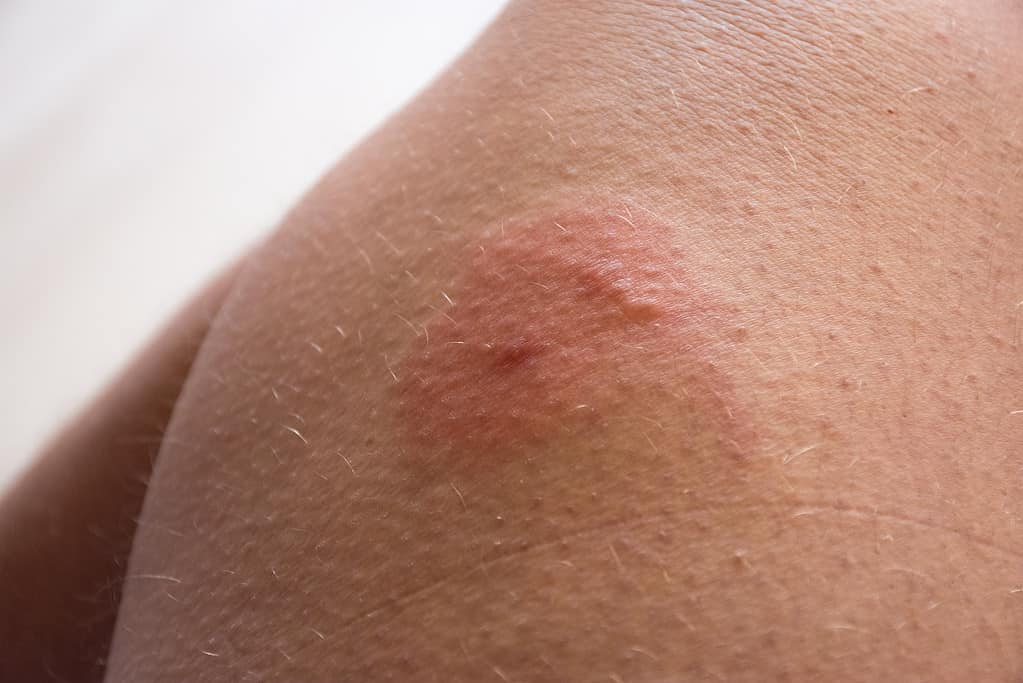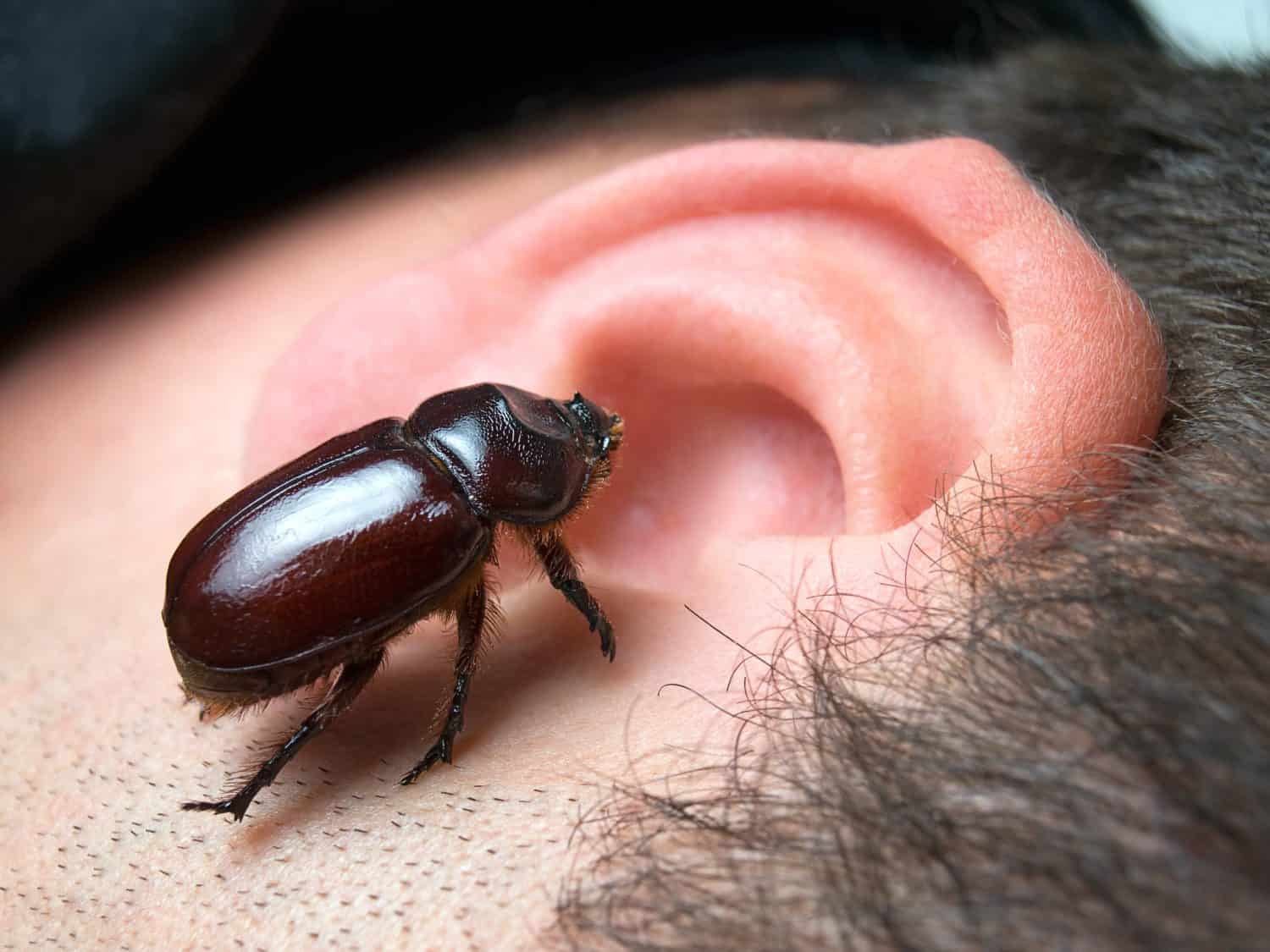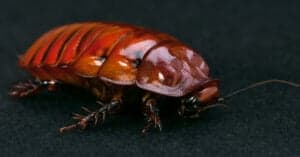You’d think it’d be pretty obvious if there is a bug in your ear, but you may not initially notice. There are certain tell-tale symptoms that help you determine whether what you’re dealing with is a bug or something else.
It’s crucial you act quickly to remove the bug to prevent infection. This is especially important if you are allergic to certain types of bug bites or stings. Discover the symptoms of a bug in your ear and learn about safe removal for fast relief!
Bug in Your Ear: Symptoms
Symptoms of a bug in your ear depend on whether the bug is still alive or if it has already died. Some of the symptoms include:
Stings
A stinging bug may employ its defenses when stuck in your ear. Its natural instinct is to defend itself in a situation where it’s trapped, so it’s possible you may experience discomfort from a sting (or several stings).
Bites
Similar to stinging insects, bugs that bite may also employ their only defense mechanism. This can feel like sharp, localized pain inside your ear.

Just like you experience a bug bite on other parts of your body, a bug bite in your ear feels similar.
©Shidlovski/iStock / Getty Images Plus via Getty Images
Muffled Hearing
When there’s an obstruction inside your ear, your hearing changes. You may experience muffled hearing but if a bug has damaged your eardrum, you may experience sudden hearing loss or a ringing sound inside your ear. When your hearing is affected, you may also experience dizziness.
Buzzing Sounds
Even if the bug hasn’t damaged your eardrum, you may hear buzzing sounds. A flying insect may be trying to fly out of your ear, which you would be able to hear.
Tickling Sensation
A small bug that neither bites nor stings may just be trying to make its way toward the light, crawling lightly against the skin in your ear. This may feel like a slight tickle inside your ear.
Itching
If you experience a bite or sting, the result could be an itchy sensation. Much like when biting and stinging bugs attack any other part of your body, the area may be irritated temporarily.
Swelling
Swelling may occur not just inside your ear, but you may notice that your lymph nodes, located behind your ear, may swell a bit.
Drainage
You may also experience drainage. The liquid may be kind of like mucus, or it may be bloody.
Redness
Since you’re experiencing irritation and may have been bitten or stung, there may be redness in the area.
Safe Removal of a Bug in Your Ear

A bug in your ear may be incredibly unnerving but do NOT use a cotton swab or tweezers to get it out.
©Sinisa Botas/Shutterstock.com
You may be able to remove a bug from your ear at home. The most important thing to remember is not to panic. Don’t use anything like a cotton swab that may push the bug further into your ear. Don’t try using tweezers either. This could severely damage your ear canal and even your eardrum.
Instead, try tilting your head and gently shaking it to encourage the bug to either get out on its own or fall out if it’s dead. If that doesn’t work, try using a bulb syringe to squirt a little bit of warm water into your ear. This could potentially flush out the bug. Tilt your head again and shake. If these methods don’t work, head to your nearest doctor’s office so you can get some professional assistance.
How to Prevent Bugs Getting in Your Ear
Unless you walk around with earplugs 24/7, there is no 100% foolproof method that ensures you will never get a bug in your ear. However, there are some measures you can take, especially when you know you’re going to be in an environment with many insects and bugs.
Like camping for example. If you intend to spend time in the great outdoors, make sure you’re well equipped with bug repellent, a hat that you can pull down over your ears, or use earplugs, especially when you’re sleeping.
Make sure that if you sleep in a tent, you can zip up and clear the indoor portion of it to ensure there are no creepy crawlies or flying insects to bother you while you’re resting. When you’re home, keep a clean environment to ensure that bugs aren’t attracted to the area where you sleep.
Keep your windows closed or make sure they have screens and anytime you’re outdoors where there are bugs and insects, use repellents to keep them from wanting to get anywhere near you.
The photo featured at the top of this post is © bowie15/ via Getty Images
Thank you for reading! Have some feedback for us? Contact the AZ Animals editorial team.







